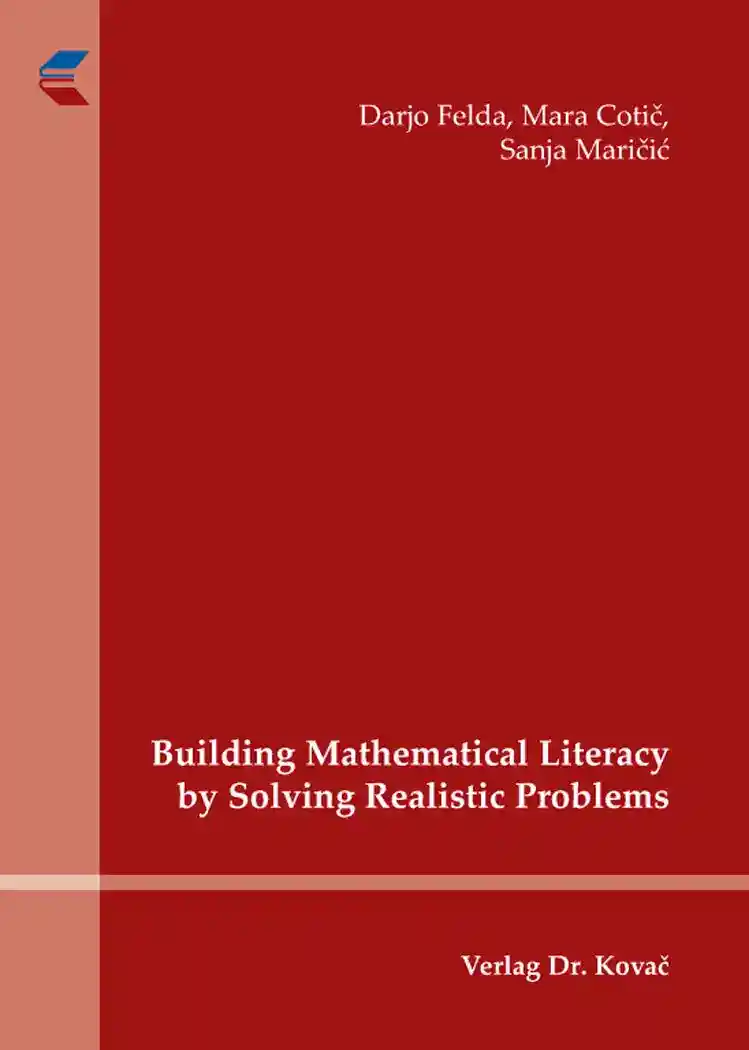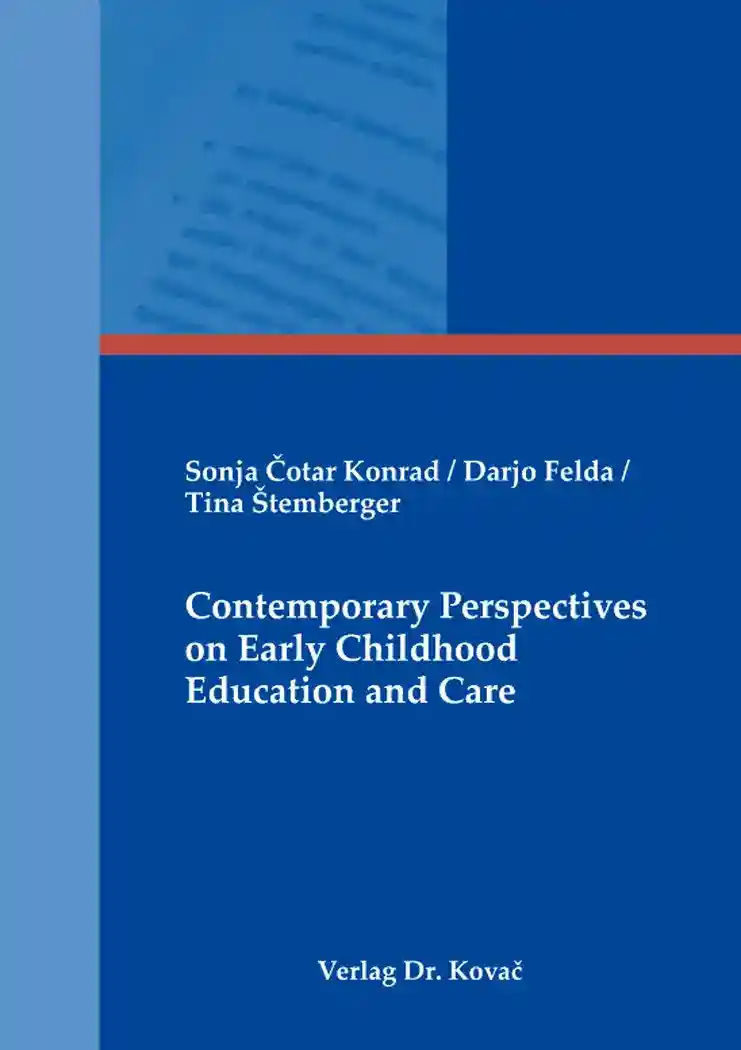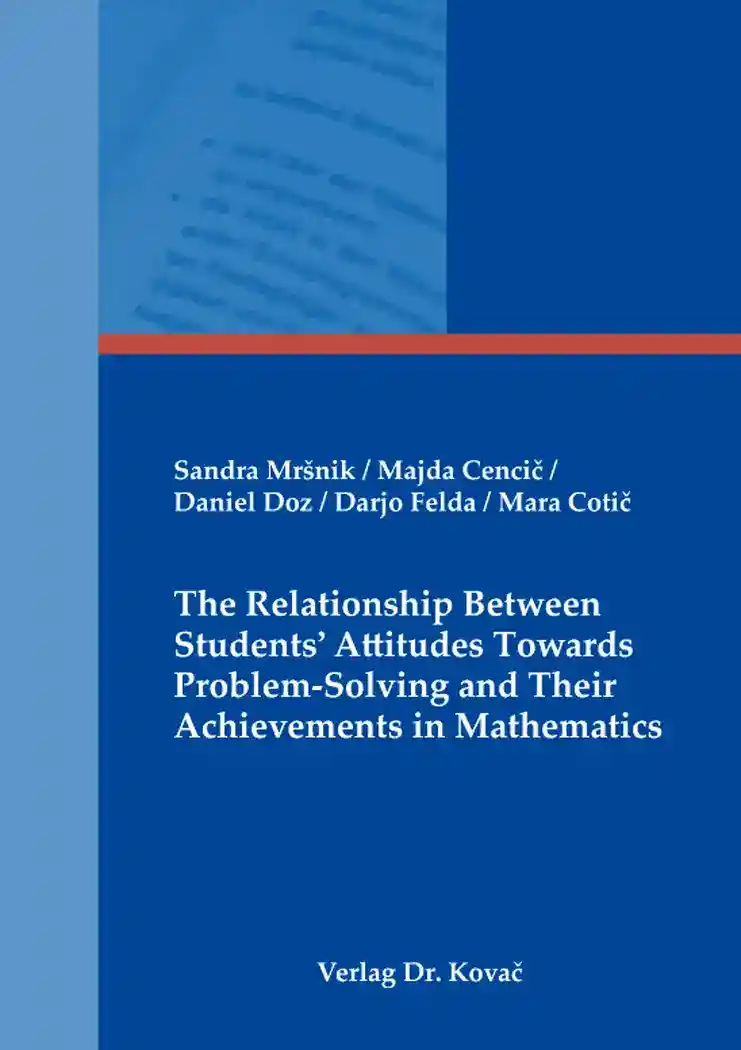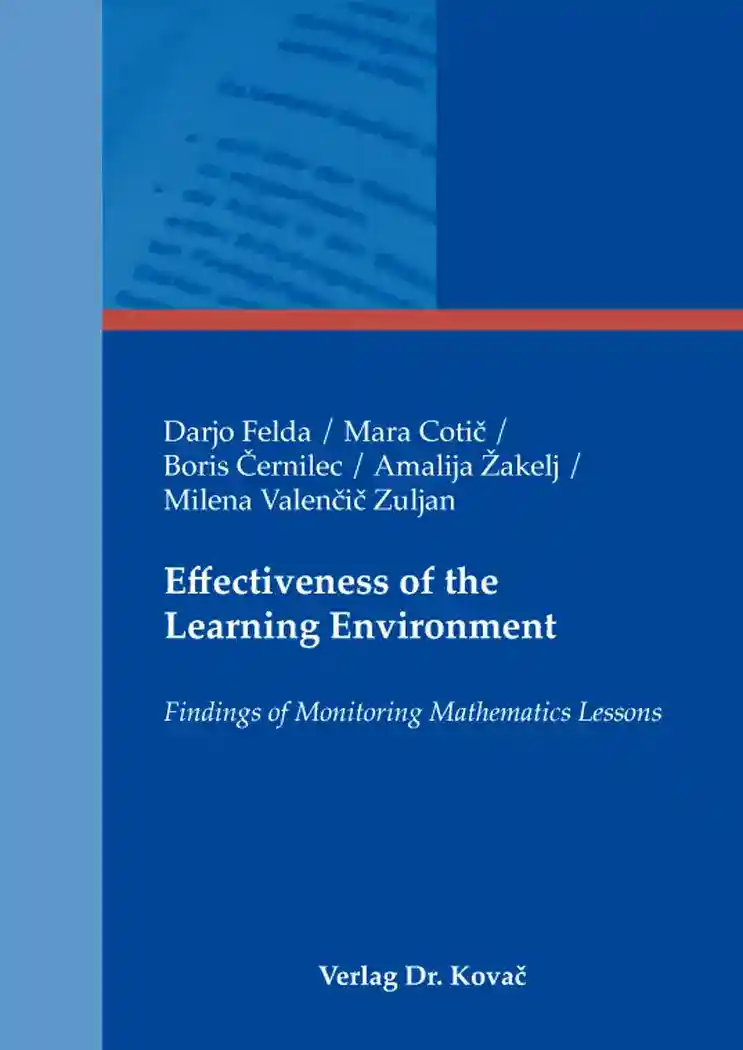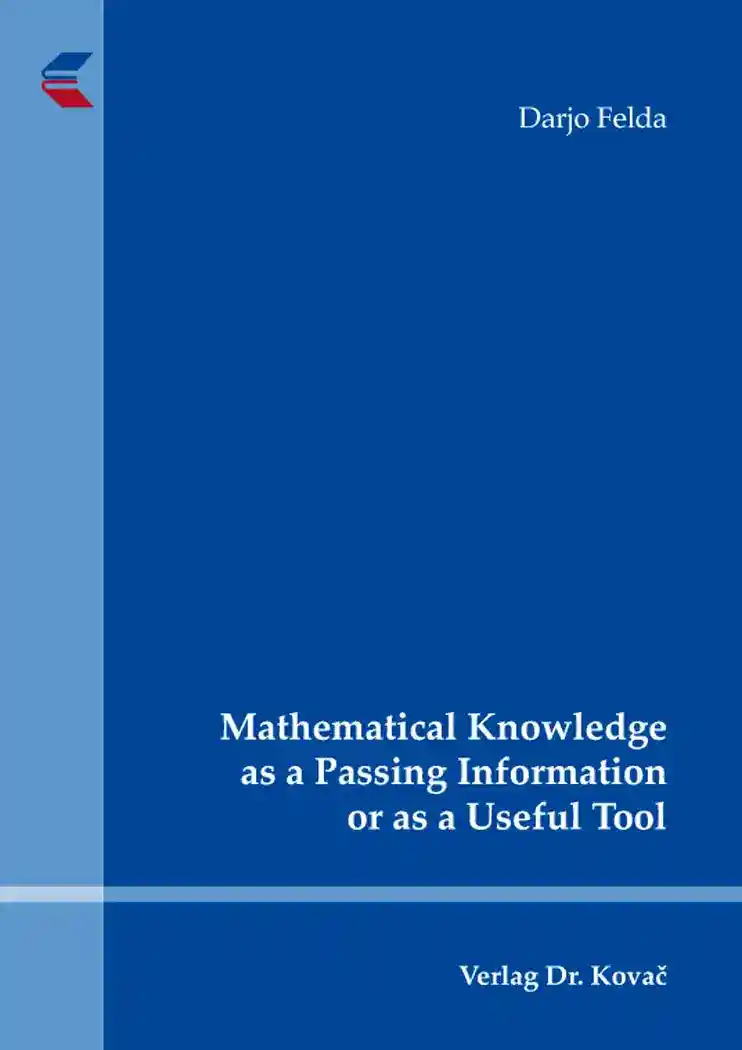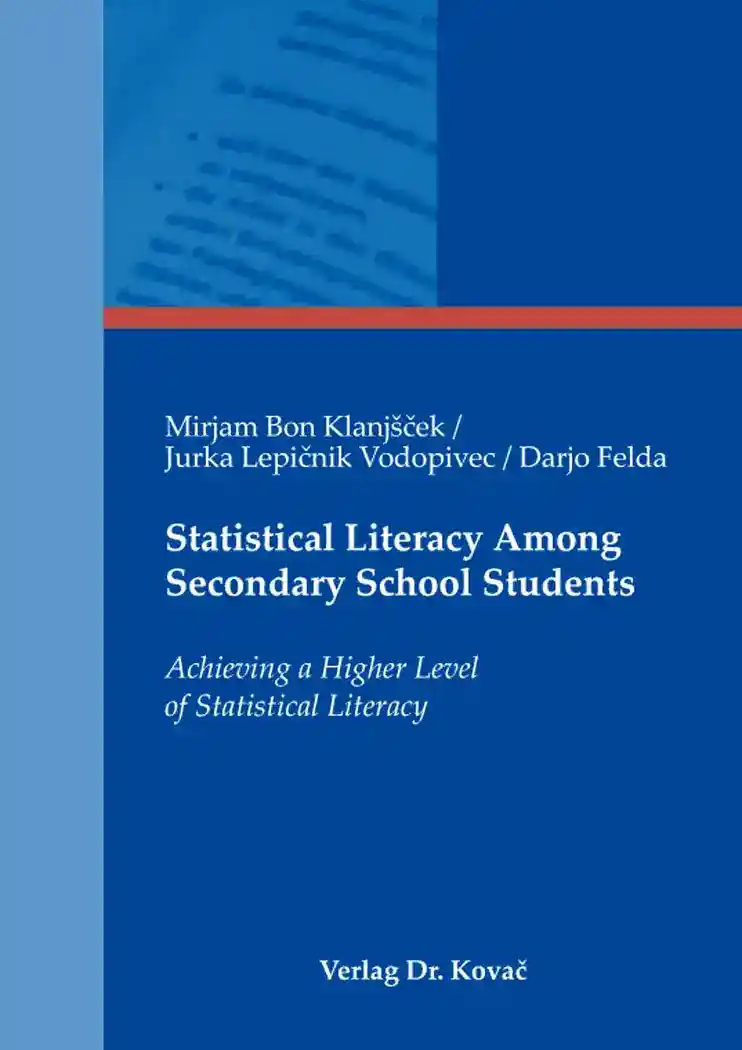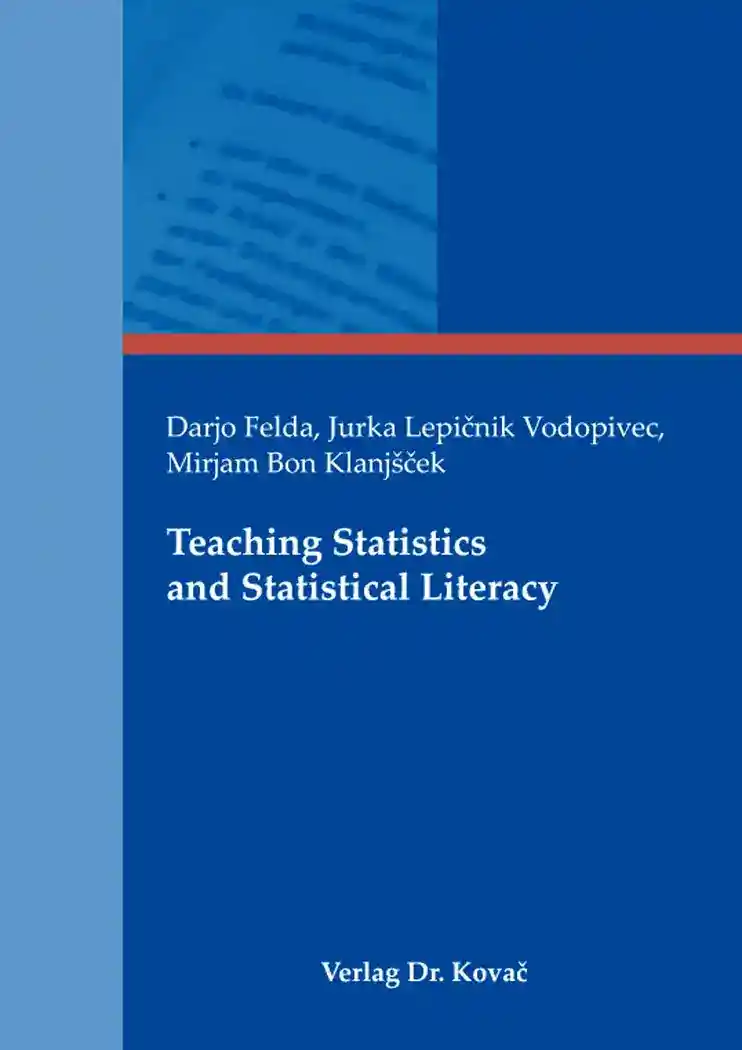Darjo Felda, Mara Cotic, Sanja MaricicBuilding Mathematical Literacy by Solving Realistic Problems
- in englischer Sprache -
Didaktik in Forschung und Praxis, Band 84
Hamburg 2016, 122 Seiten
ISBN 978-3-8300-9105-9 (Print) |ISBN 978-3-339-09105-5 (eBook)
Zum Inhalt
Today mathematics is characterized by increasing orientation toward developing the ability of thinking, towards acquiring knowledge that has applicative value in everyday life, developing students’ independence in learning, creation of the conditions that will foster the desire and need for learning the strategies of solving and investigating a variety of mathematical problems in the framework of problem situations. Solving problems represents one of the key competences assessed in international studies. The results of international assessments precisely have also been one of the reasons for changing the approaches to mathematics education, for shifting the focus from acquiring facts to the ability of solving problems and establishing solid connections of mathematics with real-life context.
The main focus of mathematics education should be on extending and improving problem knowledge, whereas the necessary knowledge of ’routines’ and automatization of certain mathematical processes should be perceived by pupil as a useful aid when solving real or realistic problems. Although the didactics of mathematics identifies fundamental elements of problem knowledge (metacognition, communication, heuristic, standpoints and prejudices, expertise, etc.), it cannot be tightly defined how to teach these kinds of knowledge effectively.
Our research has shown that a better quality of knowledge is to be expected from pupils who are actively involved in its acquisition in class: they systematically discuss their findings and concerns with their teacher and other classmates, and by listening to their teacher and classmates they obtain a different opinion or argumentation. Since the usefulness of mathematical knowledge will normally show in real situations, it is beneficial for pupils to experience realistic problem situations when acquiring mathematical knowledge. Pupils must be given opportunities to gain and master sustainable mathematical knowledge or, in other words, continually increase the level of mathematical literacy.
Schlagworte
DidacticsMathematical KnowledgeMathematical LiteracyMathematicsMathematics ClassesPedagogyProblem SituationRealistic ProblemIhr Werk im Verlag Dr. Kovač

Möchten Sie Ihre wissenschaftliche Arbeit publizieren? Erfahren Sie mehr über unsere günstigen Konditionen und unseren Service für Autorinnen und Autoren.
Weitere Bücher der Autoren
Contemporary Perspectives on Early Childhood Education and Care
Hamburg 2023, ISBN 978-3-339-13530-8 (Print) |ISBN 978-3-339-13531-5 (eBook)
Hamburg 2022, ISBN 978-3-339-13074-7 (Print) |ISBN 978-3-339-13075-4 (eBook)
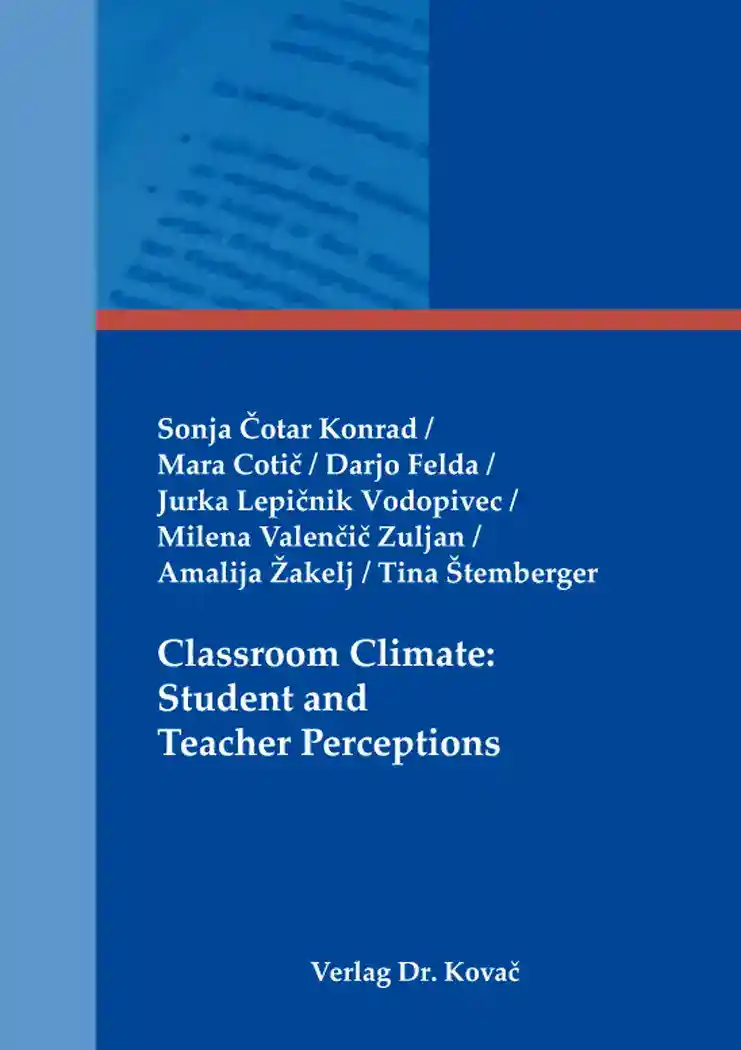 Sonja Čotar Konrad / Mara Cotič / Darjo Felda / Jurka Lepičnik Vodopivec / Milena Valenčič Zuljan / Amalija Žakelj / Tina Štemberger
Sonja Čotar Konrad / Mara Cotič / Darjo Felda / Jurka Lepičnik Vodopivec / Milena Valenčič Zuljan / Amalija Žakelj / Tina ŠtembergerClassroom Climate: Student and Teacher Perceptions
Hamburg 2021, ISBN 978-3-339-12570-5 (Print) |ISBN 978-3-339-12571-2 (eBook)
Effectiveness of the Learning Environment
Findings of Monitoring Mathematics Lessons
Hamburg 2020, ISBN 978-3-339-11730-4 (Print) |ISBN 978-3-339-11731-1 (eBook)
Mathematical Knowledge as a Passing Information or as a Useful Tool
Hamburg 2019, ISBN 978-3-339-10958-3 (Print) |ISBN 978-3-339-10959-0 (eBook)
Statistical Literacy Among Secondary School Students
Achieving a Higher Level of Statistical Literacy
Hamburg 2018, ISBN 978-3-339-10356-7 (Print) |ISBN 978-3-339-10357-4 (eBook)
Teaching Statistics and Statistical Literacy
Hamburg 2017, ISBN 978-3-8300-9648-1 (Print) |ISBN 978-3-339-09648-7 (eBook)
